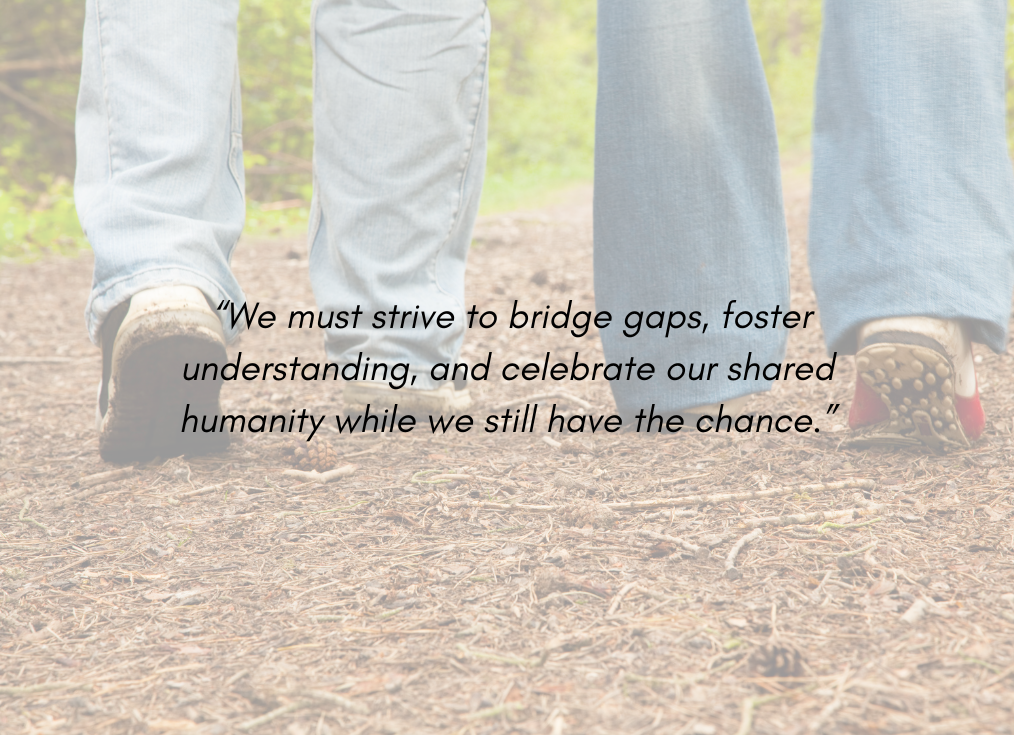Unity in Life and Death

November 10, 2023 / 26 Cheshvan 5784
In this week’s Torah portion, Chayei Sarah, we encounter a poignant moment that transcends the complexities of familial relationships and underscores the importance of unity even in the face of death. Genesis 25:9-10 recounts the burial of Abraham, where both Isaac and Ishmael, despite their differences and separate paths in life, come together to lay their father to rest. The verse states, ” His sons Isaac and Ishmael buried him in the cave of Machpelah… there Abraham was buried with Sarah his [late] wife.”
One cannot help but ponder the significance of this moment. Why did Isaac and Ishmael, who had led separate, if not antagonistic, lives and were products of distinct family dynamics, choose to unite in this solemn act of burying their father? The answer lies in a profound lesson about the nature of family, unity, and the importance of reconciling differences before it is too late.
…
The Torah challenges us to reflect on the question: Why do we often wait until the point of death to come together as a family, offering support, love, and unity when we should have been cultivating these virtues throughout our lives? Rabbi Yehuda HaLevi, a medieval Spanish Jewish philosopher and poet, sheds light on this dilemma in his work, “The Kuzari“:
“You should know that the bond of brotherhood between Israelites should be stronger than the bond of flesh and blood, as it is said: ‘A friend loves at all times, and a brother is born for adversity’ (Proverbs 17:17).”
Rabbi HaLevi emphasizes the enduring nature of true fellowship, calling for a bond that transcends the biological and extends to a spiritual and emotional connection. The Torah, through the actions of Isaac and Ishmael, encourages us to recognize the importance of building and maintaining such bonds in life, rather than only when faced with the inevitability of death.
In the context of today’s world, where divisions based on race, religion, and nationality often overshadow our shared humanity, the lesson from Chayei Sarah becomes even more profound. We are all Children of Gd, and our differences should not be a source of division but an opportunity for understanding, compassion, and unity.
As we witness conflicts, animosities, and societal divisions, the Torah challenges us to find common ground and reasons to come together before another shared loved one passes. Rabbi Lord Jonathan Sacks z”l, the late Chief Rabbi of the United Hebrew Congregations of the Commonwealth, offers a pertinent insight:
“Peace is not merely a distant goal we seek, but a journey we walk together.”
These words remind us that the journey toward peace and unity is ongoing, requiring effort and collaboration. We must strive to bridge gaps, foster understanding, and celebrate our shared humanity while we still have the chance.
Last night more than 200 Jews and non-Jews, elected officials, interfaith leaders, and community members came together to remember and reflect upon one of the darkest chapters in human history—Kristallnacht, the Night of Broken Glass. It was a night, the 85th anniversary of a night, that forever echoes the pain and suffering inflicted upon innocent lives, a night that serves as a stark reminder of the consequences of intolerance and hatred.
Sadly, this year, we found ourselves honoring the haunting memories of Kristallnacht with fresh lashes across our souls and broken hearts from a world with unprecedented rising antisemitism. And why this increase in incidents of antisemitism? Because Israel is exercising its sovereign right to defend itself against terrorist aggressors showing evils not seen since the Nazis during WWII.
And yet, even with military justification, moral legitimacy, and a duty to bring back the 242 captive hostages, our humanity and sense of virtue weighs heavy on our souls because, nonetheless, we seek an ultimate goal of peace for Israel, its neighbors, and across the globe.
The story of Isaac and Ishmael coming together to bury their father teaches us a profound lesson about the importance of unity, reconciliation, and love within the family. The Torah challenges us to reflect on our relationships and encourages us to build bridges in life rather than waiting until death forces us to confront the inevitable. In a world filled with division, this message is even more relevant today, reminding us that we are all Children of Gd, and it is our shared responsibility to find reasons to come together before it is too late. Because we are…
STRONGER TOGETHER.
Shabbat shalom.
